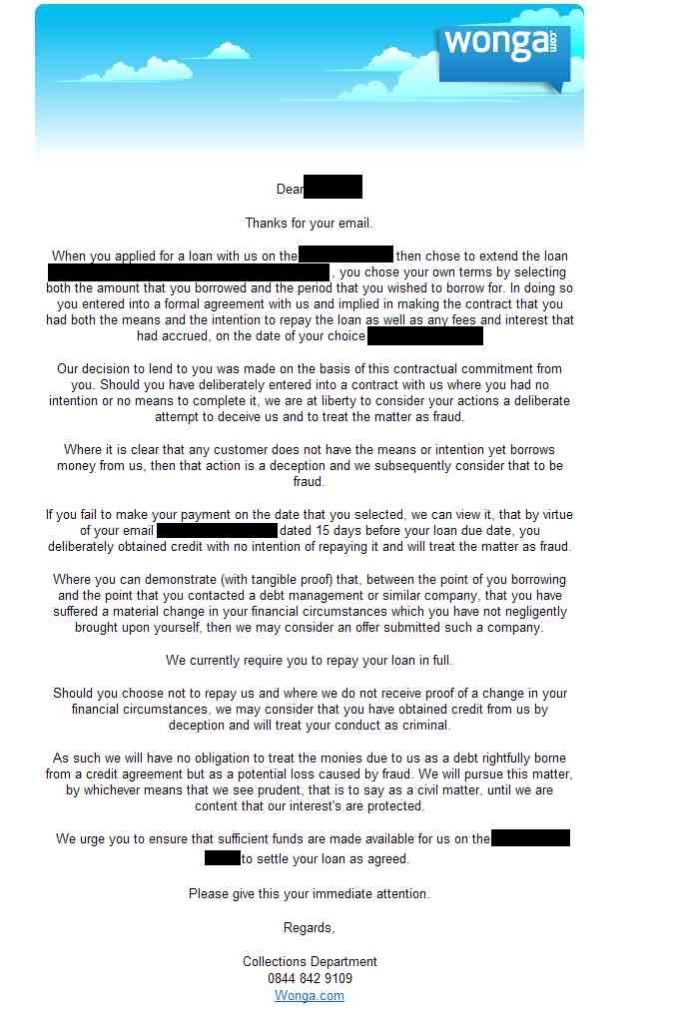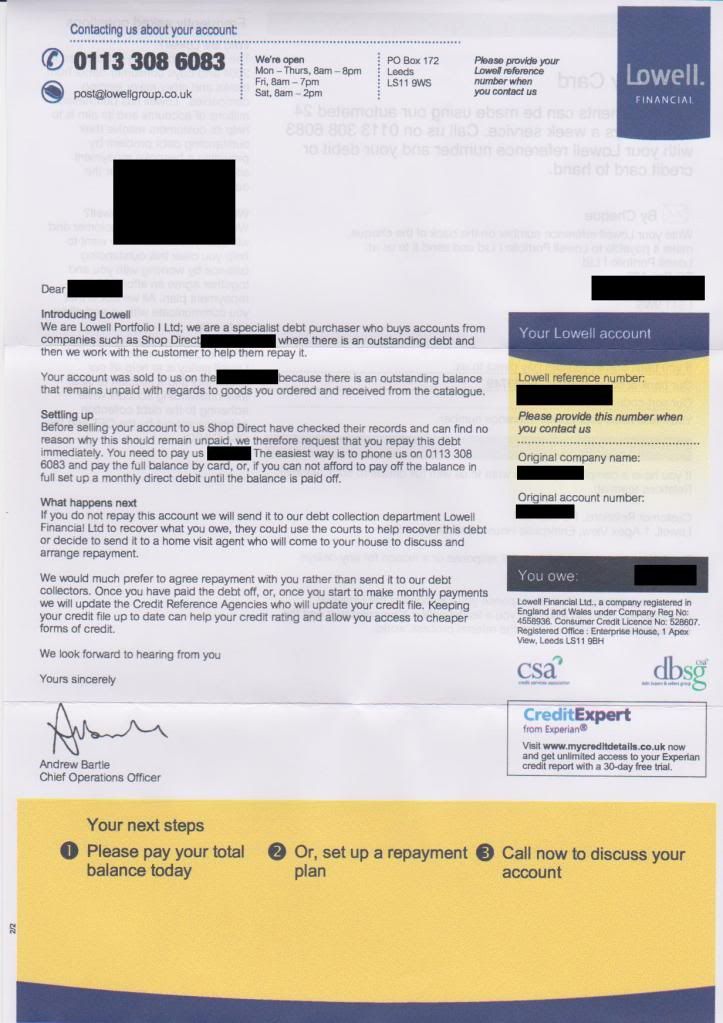Re: Letters from DCA's - Some sample letters you may have received
Heres a standard threat from Wonga. Notice how one minute they are threatening 'criminal' offences and the next minute it will be pursued as a 'civil matter'.
I've got one somewhere where they claim 'close links to the Metropolitan police'. I'm trying to dig it out.
Best
Crispy

Heres a standard threat from Wonga. Notice how one minute they are threatening 'criminal' offences and the next minute it will be pursued as a 'civil matter'.
I've got one somewhere where they claim 'close links to the Metropolitan police'. I'm trying to dig it out.
Best
Crispy









Comment